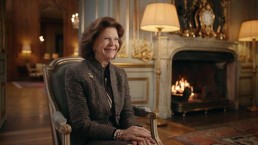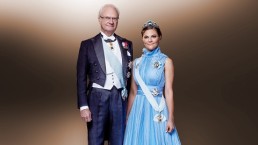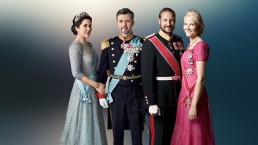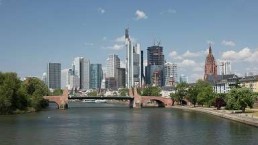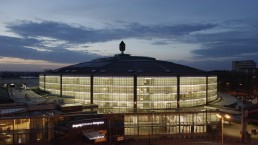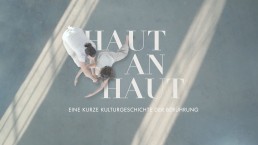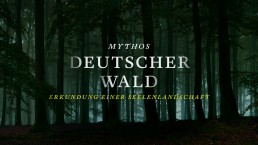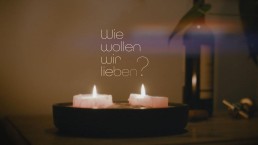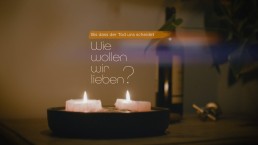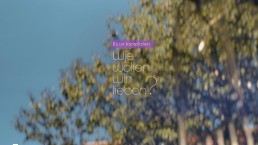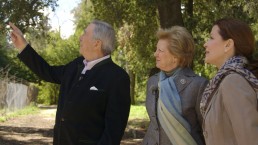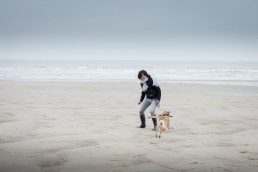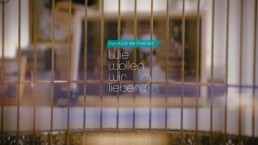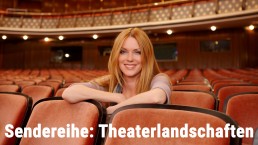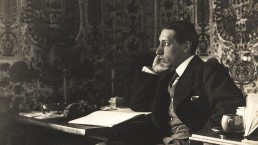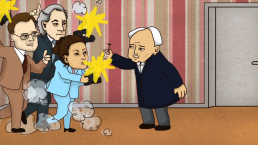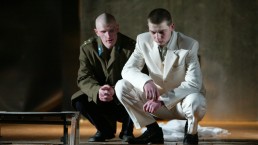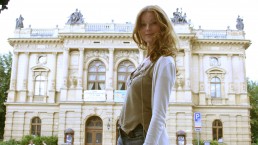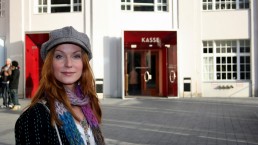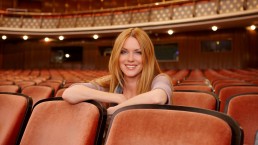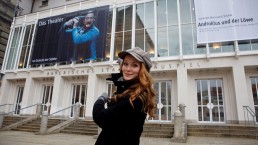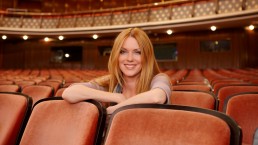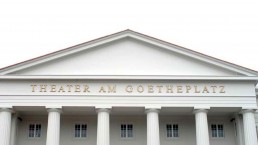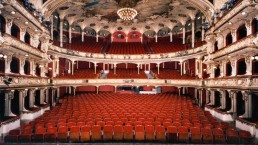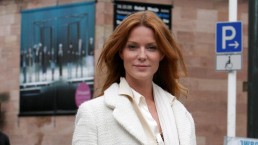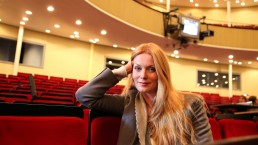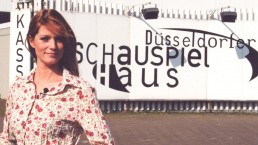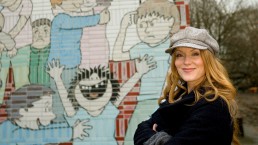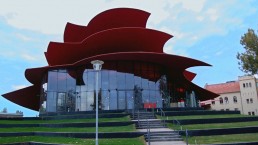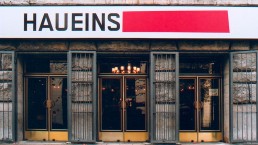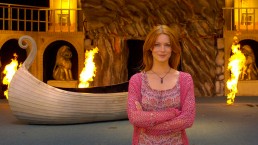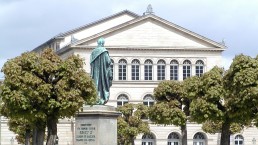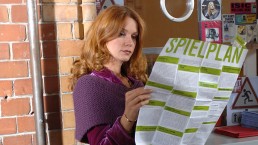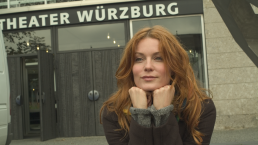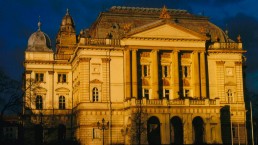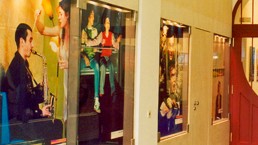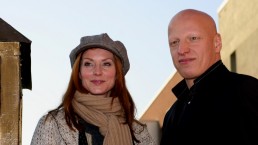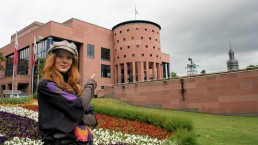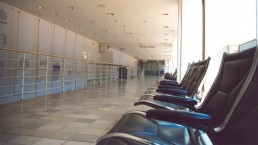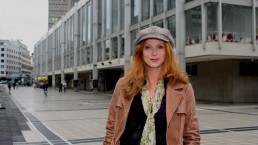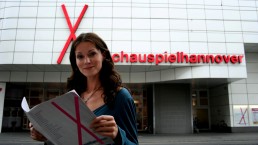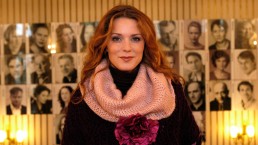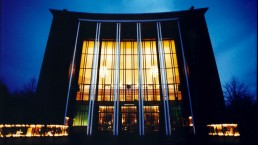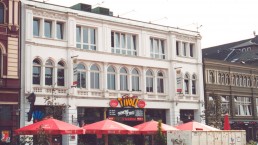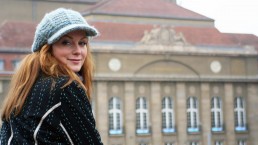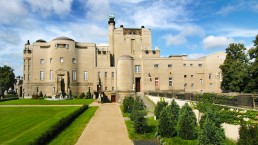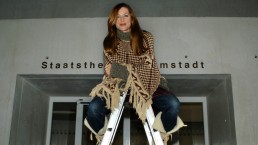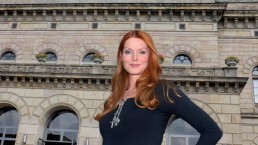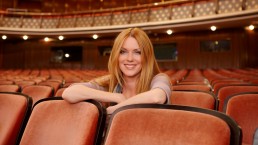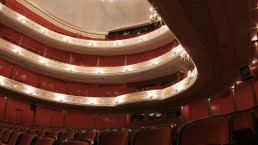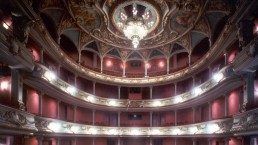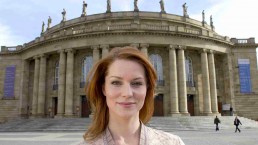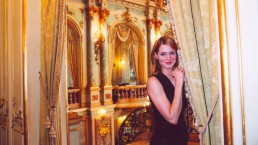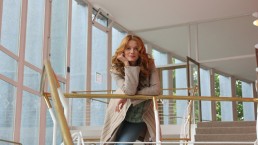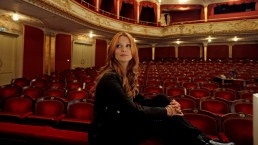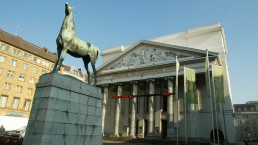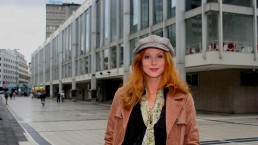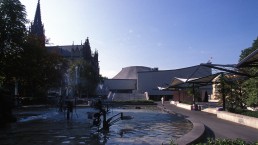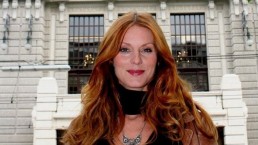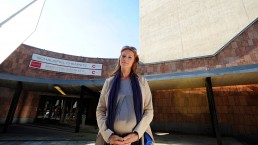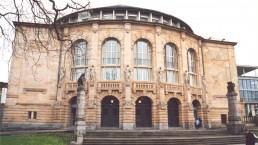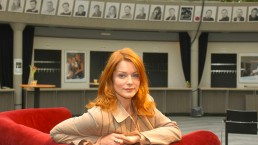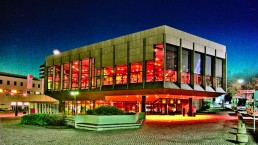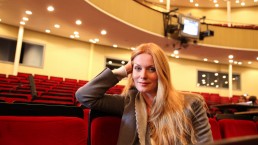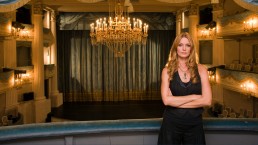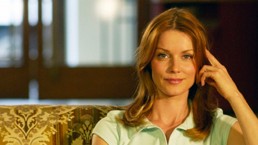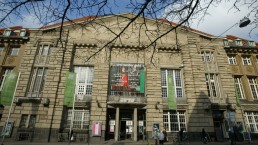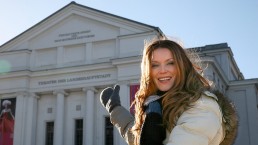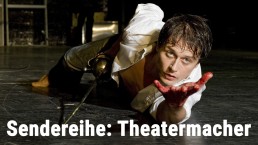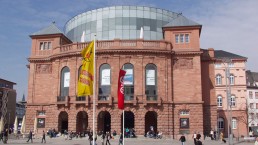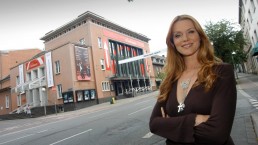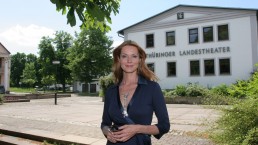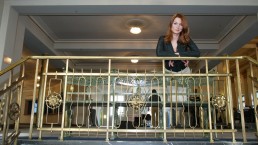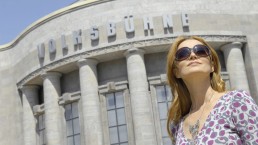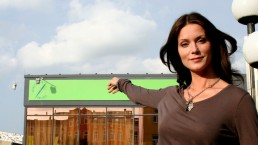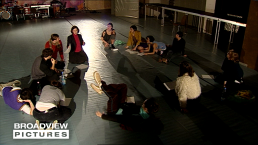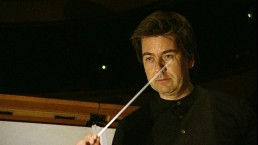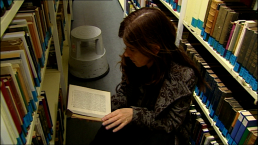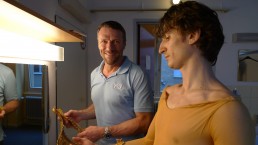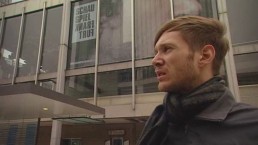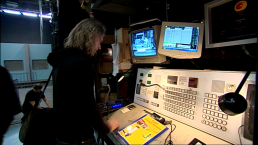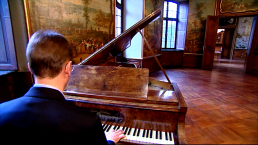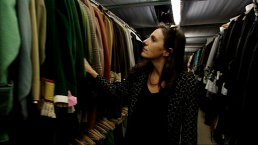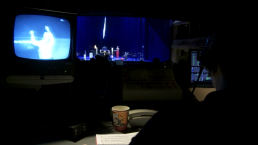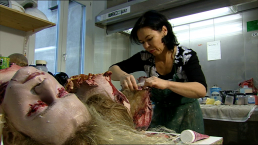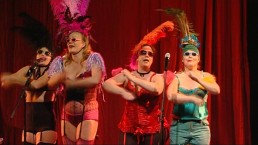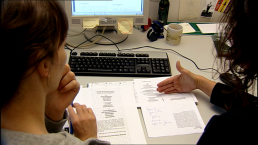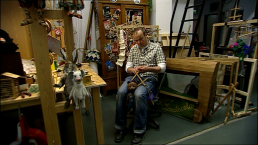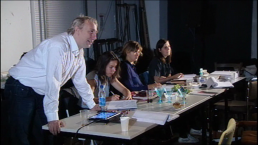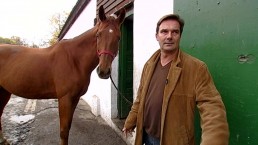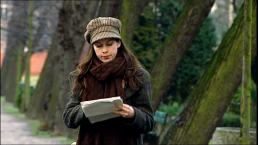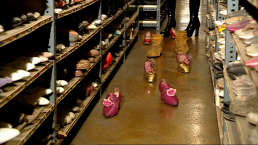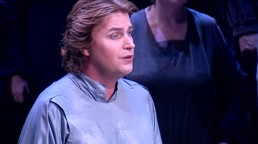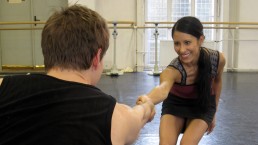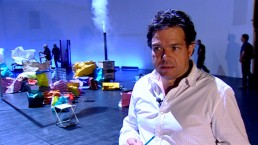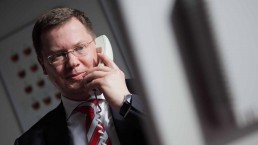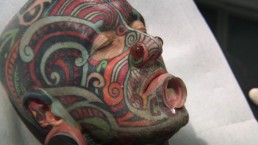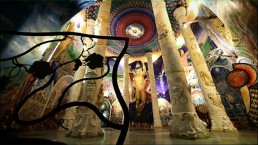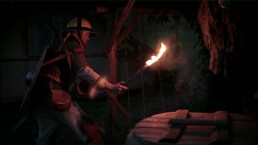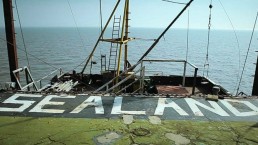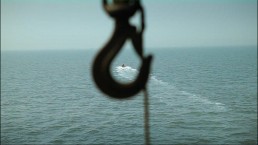
On Berlin's legendary boulevard, in the immediate vicinity of the State Opera, Humboldt University, the German Historical Museum and the Neue Wache, is the smallest of Berlin's great theatres: the Maxim Gorki Theater. The small theatre has had to position itself in relation to contemporary events from the very beginning of its existence, and so it still feels committed to German history today.
The building that originally housed the Zelter Sinkakademie is converted into a theatre after the war: In the spirit of a new utopia, the Maxim Gorki Theatre is founded. Initially, from 1946, it served as a venue for the neighbouring House of Culture of the Soviet Union. Wolfgang Langhoff, communist and director of the Deutsches Theater, staged Vsevolod Vishnevsky's Optimistic Tragedy here in 1948. In 1952, the theatre is named after the Russian revolutionary poet Maxim Gorky. The declared programme is to propagate a socialist image of man. The first director is Maxim Vallentin, who has returned from Soviet exile.
Outside, right in front of the theatre's door, the truth of socialist utopia has long since shown its ugliest face. The uprising of 17 June 1953 was bloodily put down by the Soviet power. Communist theatre-makers like Vallentin, however, continue to cling to their high ideals of a new, better society. But these ideals and real existing socialism drifted further and further apart. The Gorki Theatre gradually adopts a critical tone.
In 1968 Albert Hetterle becomes the new director of the Gorki Theatre. He feels committed to the Russian and Soviet tradition of the theatre. Many people regarded the Gorki Theatre as a party theatre where one should not go. Hettertle combats this attitude with a kind of socialist boulevard theatre. But in the 1970s and 1980s, even the ideals of convinced party soldiers in the GDR melted away. Intendant Albert Hetterle, changes and his relationship to the state. "Three Sisters", the play by Chekhov in which a frozen society dreams of a different life, is seen by many viewers as a parable of the GDR. In 1988, Volker Braun's "Transitional Society" is an intellectual continuation of "Three Sisters" and relates it directly to the GDR. The premiere evening becomes a controversial sensation. Less than a year later, in November 1989, East Berlin theatre people initiate the big demonstration on Alexanderplatz, the artists' call for more democracy. The Gorki Theatre is at the forefront. On 9 November 1989 the Wall falls, the end of the GDR is sealed. One year later Germany is reunited.
At this point, the Gorki Theatre is a house with a strong ensemble and profile and with great audience interest. Long years have welded the staff together. The family Gorki changes greatly in the post-reunification years. After 26 years, Hetterle steps down and the Gorki family is reshuffled. And once again the boulevard draws the audience to the theatre. All of Berlin turns upside down when the popular actor Harald Juhnke plays the "Captain of Köpenick".
In the 1990s, after the great euphoria of unification, Berlin slides into a major crisis. Many theatres and cultural institutions are closed. A radical cut for a theatre in depression: in 2006 Armin Petras is appointed head of the Maxim Gorki Theatre. He opens his directorship with ten premieres in one fell swoop. And he continues at this pace. He is also known as the "frenzied Armin". Most of the audience is young and prominent actors such as Fritzi Haberland, Peter Kurth or Regine Zimmermann are attracted by the aesthetic of Armin Petras. Petras gathers people around him whose work deals with German-German history. But he is also oriented towards today. Petras has facilitated 50 world premieres in two years - young authors are on the repertoire and the average age of the audience has dropped from mid-50s to mid-30s.
The Maxim Gorki Theatre has a future again in the centre of Berlin, the centre of the German capital. On the boulevard with all the history... embedded in this important, historical environment.
First broadcast: Sun, 06 September 2009, 12:30, 3sat.
Theatrescapes: Maxim Gorki Theater
On Berlin's legendary boulevard, in the immediate vicinity of the State Opera, Humboldt University, the German Historical Museum and the Neue Wache, is the smallest of Berlin's great theatres: the Maxim Gorki Theater. The small theatre has had to position itself in relation to contemporary events from the very beginning of its existence, and so it still feels committed to German history today.




